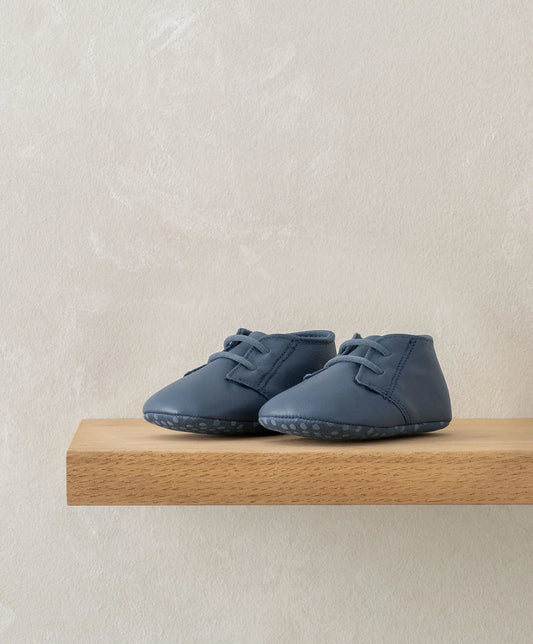Our Resident Sleep Experts, Gem and Eve from Clam and Bright Sleep Support, are here to highlight the biggest sleep challenges you and your baby are likely to face during their first year.
But fear not, as they also share insights into what causes these common – and often fleeting – challenges, along with how you can minimise disruptions so your little one (and you!) can get back to sleeping soundly.
With NHS expertise and real-life experience, combined with their gentle, empowering approach to peaceful baby and toddler sleep solutions, there’s no one better to guide you towards calmer nights and brighter days.
The first 12 months of your baby’s life are magical, messy, exhausting, and unforgettable. Alongside the snoozy snuggles and countless firsts, you’ll probably face a fair few sleep challenges - and that’s completely normal.
One thing we’ve learned over the last 16 years supporting families with sleep is that every baby is different and every parent is doing their best. There is always a way through the tiredness, and you’re not alone in this.
Here are the five most common sleep hurdles you’re going to face in your baby’s first year - and some gentle, practical ways to work through them.
1. Newborn Day-Night Confusion
What it is:
In the womb, babies don’t follow a day/night pattern. Once they’re born, some will have their longest sleep stretches during the day and wake frequently at night. This is ‘day-night confusion’ or ‘reverse cycling’, and it’s completely normal in the early weeks.
Why it happens:
Your baby’s internal body clock (circadian rhythm) is still developing. They don’t yet produce enough melatonin (the sleep hormone) to help them consolidate nighttime sleep.
How to help:
- Expose them to natural daylight during the day, especially in the morning. This helps set their body clock.
- Keep night-time interactions calm and quiet - dim lighting, soft voices, minimal stimulation.
- Establish gentle cues: a short wind-down routine before naps and bedtime can begin as early as the first weeks.
Reassurance: This phase usually starts to improve around 6-8 weeks as your baby’s circadian rhythm develops. You don’t need to ‘sleep train’ a newborn - just focus on keeping days bright and nights calm.
2. Frequent Night Waking
What it is:
It’s normal for babies under 6 months to wake at night for feeds, but beyond the 6-8 month mark, night feeding is not necessary (although it is of course okay to choose to feed beyond this point) and can contribute to increased night wakes if feeds are given beyond when they’re needed or given when hunger isn’t the cause for the wake.
Why it happens:
- Sleep associations. We call these ‘the ings’, such as feeding, rocking, holding, staying, hand holding, replacing (the dummy), and co-sleeping. Whatever happens to get a baby to sleep or back to sleep is what they come to believe they need on waking.
- Discomfort. Whether that’s reflux, colic, teething, constipation, wind, a runny nose, pain or discomfort, our babies cannot sleep their best when they’re not feeling their best.
- Developmental milestones such as rolling, crawling or babbling can cause intermittent disruption to sleep. However, these are very fleeting - lasting days, not weeks.
How to help:
- Check the basics first - rule out hunger, temperature, nappy or discomfort/pain.
- After the 6-month mark, gently encourage self-settling responsively. You can do this by feeding before, not after, a nap, pausing for a moment before responding to give them a chance to resettle on their own, and gradually reducing the amount of help you give your baby to get them to sleep.
- Consider doing some responsive sleep teaching to enable the 10-12 solid hours your baby needs for healthy development and happiness beyond the 6-month mark.
Reassurance: Night waking is not a sign you’re doing anything ‘wrong.’ Before 6 months, they’re normal and even essential. Beyond the 6-month mark, they’re often about habit, and they can be gently guided toward longer stretches when you and your baby are ready.
3. Short Naps
What it is:
Have you ever taken longer to settle your baby to sleep than the time they actually slept?
If so, you’re not alone. It’s super common for naps to be short (and really hard work) in the first 6 months of life. And even beyond that, if your baby naps for just 20-40 minutes, only to wake up clearly having not had enough - and leaving you both exhausted and frustrated - then here’s what you need to know.
Why it happens:
- Newborns have immature sleep cycles, so short naps are common until around 4-6 months.
- As they grow, short naps will continue if they rely on help to get to sleep initially.
How to help:
- Use our nap gaps so that your baby doesn’t go down overtired, as this leads to shorter naps.
- Feed before sleep so that you’re working with nature.
- Encourage self-setting. If your baby is being helped to sleep at any point, it will affect both day and night sleep. It is only when they can confidently settle themselves to sleep that they will sleep their best sleep.
Reassurance: Short naps don’t mean your baby will never nap well. Sleep is a skill, just like any other, that you encourage your baby to learn. With time (and some gentle guidance), all babies can start linking their sleep cycles for longer naps. Many Calm & Bright families who’ve learned to self-settle have to wake them at the 2.5-hour mark!
4. The 4-Month Sleep Regression
What it is:
The only scientifically recognised regression, and usually the hardest point in a baby’s sleep journey. It is at this time that your baby’s sleep matures from simple newborn patterns into adult-like sleep cycles, which means they now spend more time in lighter sleep and may fully wake between cycles, especially if they’re used to being helped to sleep. This time often has parents feeling like they’re back to square one.
Why it happens:
Your baby’s sleep cycles are maturing to be more like an adult’s, so they spend more time in lighter stages of sleep. This is not a temporary phase, but rather a progression - your baby’s sleep structure has matured and will now stay this way for the rest of their lives. The challenge is helping them adapt to it.
How to help:
- Offer plenty of feeds and comfort during the day to aid them with the change and help them to stock up on milk for the night.
- Keep on top of nap gaps by having them asleep within 1.5 hours of last waking, always with a full belly before sleep.
-
Support but don’t over-assist - give them a moment to settle or resettle before rushing in, so they have the chance to learn the skill of self-settling.
Reassurance: This is a permanent shift in how sleep works, and is about as bad as it gets sleep-wise. Try to hold on to the fact that 10-12 solid hours of sleep overnight - and lovely long naps of up to 2.5 hours - are totally within reach by the 6-month mark.
5. Teething, Illness, and Growth Spurts
What it is:
Throughout the first year, every baby’s sleep will be disturbed by temporary physical changes such as teething, illness and developmental changes.
Why it happens:
- Teething can cause gum discomfort, agitation and sore bottoms from the more acidic saliva in the stools.
- Illness (colds, ear infections, tummy bugs) can disturb sleep with discomfort or congestion. Be sure to rule out any allergy or intolerance if colds or ear infections are persistent, as these can be linked to a cows dairy intolerance.
- Growth spurts increase hunger and can temporarily cause more night waking. These should not last more than a day or two. If wakes persist beyond this time, they are most likely to be more about habit than need.
How to help:
- Offer extra comfort if your baby is showing you they are struggling. Freely give cuddles, contact naps, and reassurance - you can scale back on this upped level of comfort once your baby is feeling better.
- Follow medical guidance for teething pain or illness. Homeopathic remedies such as Nelsons Teetha sachets can really help soothe and calm your teething baby.
- Try to only offer additional comfort for sleep if your usual level hasn’t worked. Offering higher comfort and help for sleep when it isn’t needed, or beyond when it is, makes sleep more likely to remain broken once the pain or discomfort has passed.
Reassurance: These disruptions are temporary. Meeting your baby’s needs during these times doesn’t create bad habits; it strengthens their sense of security. Gently scaling back comfort once they’re better will lead you back to longer, more consolidated sleep.
6. A Gentle Final Word
If you’re in the thick of tiredness in your baby’s first year of life, please know that none of these challenges mean you’re failing. Sleep in the first year is a learning process for you and your baby - and there is no one way to get it right. Some days will feel easier than others.
You don’t have to ‘do it all right’ or ‘stick to the rules’ to have a well-rested baby. What matters is not how sleep happens, but that you’re all getting enough. If you are responsive to your baby’s needs (including their fundamental need to sleep), are kind to and forgiving of yourself and ask for support when you need it, you will be right where you’re meant to be.
Your baby’s sleep will keep evolving, and so will your confidence. And if you ever feel stuck, know that we are here for and with you, every step of the way.






















